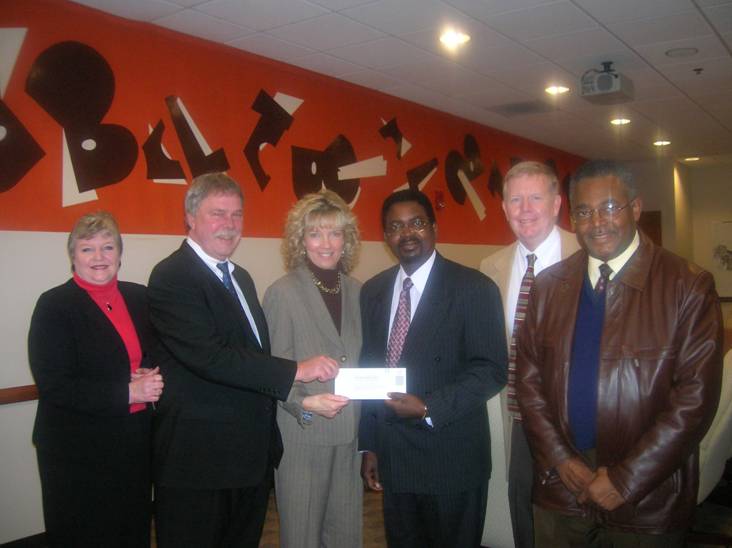Sunday, January 28, 2007

PRINCESS ANNE, MD -Peninsula Mercantile Bank will enlarge the scholarship endowment it created to aid students majoring in business, management or accounting at the University of Maryland Eastern Shore by $25,000 over the next four years.
“We believe education is important not only to the success of individuals, but to the future of our communities,” said Jeff Turner, president and CEO. “The communities that we serve and the people in those communities have helped make Mercantile Peninsula Bank successful. Giving back in the form of scholarships to students who may not otherwise be able to attend higher education is an important part of our business philosophy. It’s the right thing to do.”
Mercantile Peninsula Bank initially contributed $20,000 in 2005 to establish the scholarship endowment, which, so far, has benefited seven students majoring in business, management or accounting, according to Ayodele J. Alade, Ph.D., dean of the School of Business and Technology.
“Peninsula Bank’s proposal to more than double the size of the endowment over the next four years means that, by 2009, we will have roughly twice as much scholarship money to offer deserving students,” he said.
For the more than 50 percent of UMES students who represent the first generation of their family to go to college, the financial obligation can be staggering. Yet the diploma, and the education it represents, is a ticket to a better life; so most families are willing to undertake it.
“That’s why it is a priority of the current fundraising effort to enlarge the number of endowed scholarships available,” said Ronald H. Brown, Ph.D., vice president of student life and enrollment management. “Almost 50 percent of UMES students graduate in six years, the best percentage among historically black colleges in Maryland.”
The cost of going to college and staying in school remain barriers to graduation for many students, including those at UMES. Over 90 percent of UMES students qualify for federal financial aid.
But they do graduate, most within six years, and begin to “pay it forward,” rewarding the university th

